For those who love plants, both in the home and out in nature, there’s no better gift than one that complements their hobby. We’ve curated gifts that will inspire the green-thumbed person in your life to learn about, tend, and celebrate the plants around them in unexpected, delightful ways.
A bundle of plants
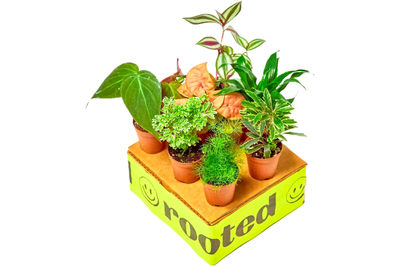
Rooted Assorted Bundles
These small yet vigorous houseplants arrive in pleasing themed bundles—a simple and affordable way to expand someone’s plant family.
*At the time of publishing, the price was $70.
Rooted Assorted Bundles come in lots of configurations, with varying plants, quantities, and care requirements. Each bundle contains a random assortment according to the box’s theme (there are fern collections, ficus collections, pet-friendly collections, and more). And we appreciate that all of the plants in each bundle have the same care instructions, so they can all thrive in the same place with the same amount of water. There’s another universal element: All of the Rooted bundle plants arrive rather small yet vigorous, nestled carefully in a cardboard box. Don’t know which bundle to get? For recommendations, take Rooted’s simple plant quiz with the person you’re giving it to in mind.
A botanical bestseller
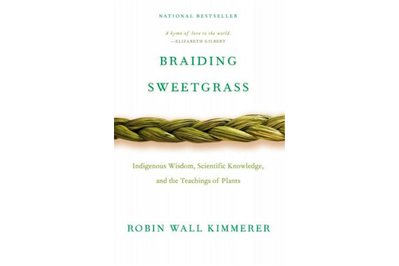
Braiding Sweetgrass
Written by indigenous botanist Robin Wall Kimmerer, this modern classic explores our connection with all living things, including plants.
*At the time of publishing, the price was $27.
Praised for its beautiful, moving prose and its message of ecological connection and wisdom, this collection of best-selling essays has become a modern classic of nature writing. Braiding Sweetgrass was published in 2015, but the ideas explored by indigenous botanist Robin Wall Kimmerer—namely advocating for the voices of all living things and exploring the human/plant connection—have an enlightened, timeless appeal.
Everlasting Lego succulents

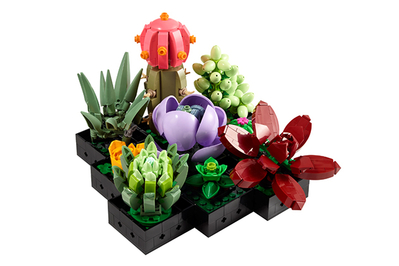
Lego Succulents 10309
Display these little boxes of click-together succulents clustered as a group or spread out. The only care they need is dusting.
*At the time of publishing, the price was $50.
What’s a plant lover to do when all of their plants are thriving? Assemble Lego succulents, of course! The nine individual plants (aloe vera, hens and chicks, and red echeveria among them) each stand about 6 inches tall. And they all sit in their own square planter, so they can be displayed clustered together or perched individually. If the 771-piece project is a real hit, our testers also loved all of the plants in the Lego Botanical Collection.
Pretty plant props


Fruitsuper Plant Sticks
These graceful, modern brass plant sticks prop up delicate stems and coax climbers upward.
These Fruitsuper Plant Sticks come in a set of three, with different lengths and shapes to prop up fragile stems, provide support for leaners, and encourage climbers to grab on. And they are so much better looking than those green sticks or twist ties most of us use. As the sticks age, the solid brass will patina, but it can also polish up nicely, if that’s the look one prefers.
An elegant avocado vase
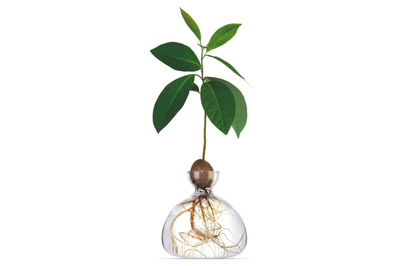
Ilex Studio Avocado Vase
This elegant, shatter-resistant vase is the perfect vessel for sprouting avocado pits.
*At the time of publishing, the price was $55.
Plant lovers will thrill at watching their avocado plants sprout roots and grow leaves in Ilex Studio’s shapely vase designed just for this purpose. The neck holds the pit so it’s perfectly settled in the water, and then you simply let nature take its course. Made of shatter-resistant borosilicate glass, this vase comes in clear, smoke gray, and blue, among other dreamy shades. And it comes with a helpful book of avocado lore and growing tips.
No-mess potting mats
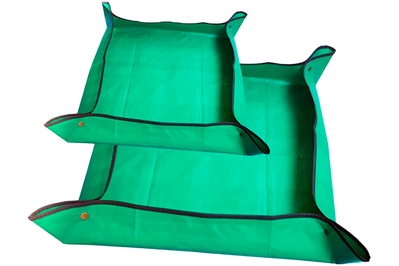
Repotting Mats
This set of waterproof repotting mats includes a smaller version for countertop projects and a larger version for bigger jobs and outdoor use. Both fold up easily.
A repotting mat is a simple but essential tool for indoor gardening. These mats keep water and soil from getting everywhere, and plant tenders can use them to collect leftover soil for reuse. There isn’t a lot of difference among various potting mats—they are rectangles of waterproof fabric that snap at the corners to create shallow, spill-proof surfaces. We like this set because it comes with two mats—a smaller one for countertop repotting and a larger one for bigger jobs and outdoor use. They’re definitely not fancy, but if the plant lover in your life doesn’t already have some of these, this gift could be life-changing (or at least very useful).
Moisture monitors

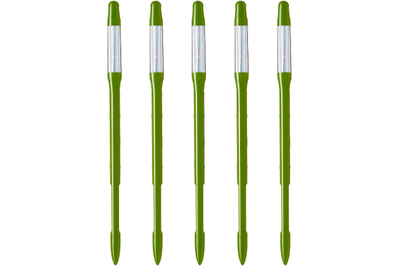
Sustee Aquameter (set of 5)
The plant lover in your life wants to be sure their plants are getting enough to drink. These moisture-sensing sticks will change color to let them know.
Sustee, a Japanese company, worked in collaboration with the Tokyo University of Agriculture to create a patented indicator to monitor pF. When someone waters a plant, the refillable sensors turn blue as the pF reaches about 2.0. That’s the sweet spot, or a soil moisture range enjoyed by all plants. When the sensor turns white, though, plants are in danger of wilting. The Sustee Aquameter is excellent for helping plant owners figure out the unique hydration rhythms of each plant. And though they’re pricey, the sensors last about a year in most soils and can be replaced after that.
Just a spritz

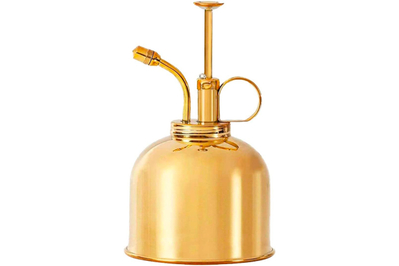
Brass Plant Mister
If your pal has plants that prefer a light misting over a good soak, this handsome brass mister is just the ticket. And it holds up for years.
For plants that require just a whisper of water (like some succulents, hanging air plants, and orchids), or for those that prefer to absorb some moisture through their leaves, the Brass Plant Mister is just the tool. It prevents one from drowning beloved plants, and with its brass-plated finish and elegant shape, it looks beautiful in the home. Wirecutter editor Hannah Morrill gave one to her partner at least five years ago. She reports that the brass has since developed a pleasing patina, and their diva-esque maidenhair fern is still going strong.
Miracle pot
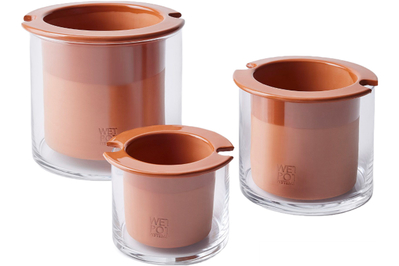
MoMA Self-Watering Wet Pot Planter
Houseplants are much harder to kill in these pretty terra-cotta-and-glass self-watering planters, which slowly absorb water to keep soil moist.
This nifty planter comes recommended by supervising editor Marilyn Ong, who’s always suspicious of gimmicky gifts. After the MoMA Self-Watering Wet Pot Planter rehabilitated her desiccated fiddle-leaf fig to a lush specimen in just a few months, she’s become a sworn convert. The wet pot is actually two pots—a terra-cotta planter inside a reservoir made of glass. And, as with so many good things, the concept here is simple. Just fill the glass reservoir with water; the soil’s moisture level dictates how much the terra-cotta absorbs. Take note, however, that only thirsty plants—not succulents or orchids—would appreciate this home.
Minimalist stem station
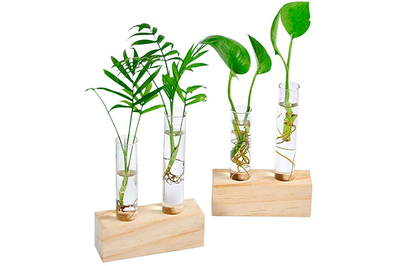
Ivolador Crystal Glass Double Test Tube Station
Lab-grade test tubes securely nestle in unfinished wooden blocks to create a utilitarian and minimalist propagation station.
*At the time of publishing, the price was $15.
The Ivolador Crystal Glass Double Test Tube Station is simply constructed from an unfinished block of wood and two simple test tubes. And yet, thanks to a few well-placed holes, the vessel is the perfect station for at-home propagation. The vase is un-sanded and a skosh chunky, but that also means it won’t readily tip and upset delicate burgeoning root systems. For this price, you can buy a few; that way the recipient can propagate Boston ferns, pothos, philodendrons, and ZZ cuttings to their heart’s content.
Mighty mini magnets

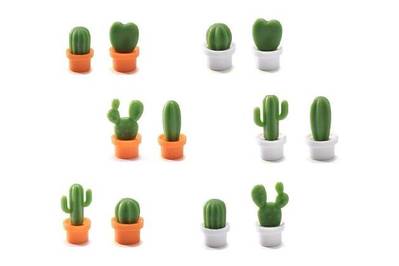
TabEnter Decorative Refrigerator Magnets
These mini cacti magnets aren’t the strongest in the world. But they come in six detailed varieties and easily keep a photo on the fridge.
*At the time of publishing, the price was $8.
What could be better than a fridge covered in tiny cacti? These cactus magnets hold photos, lists, and children’s artwork on the fridge, and they require no care whatsoever. The diminutive sculptures are strong and pleasantly detailed—we especially like the bunny ear cactus and hoya heart—and they make a useful, aw-inducing gift, especially for the price.
A can-do watering can

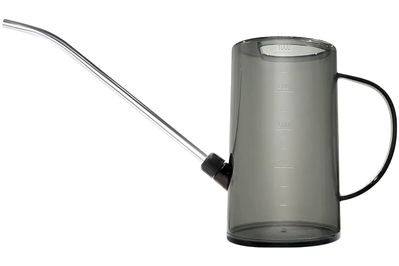
Qilebi Long Spout Watering Can
This watering can’s extra-long spout is precise and steady, so gardeners can easily reach hanging plants and other tricky fronds. However, it’s not as great for big plants that require large glugs of water.
With an extra-long spout that’s precise and steady, the Qilebi Long Spout Watering Can is ideal for watering hanging plants or plants with bushy leaves that hide soil. During testing, we appreciated that the can’s clear body let us see when we needed to head to the sink for a refill. And the measuring lines make it easy to add precise plant-food quantities. Plus, it just looks cute, either shelved in the garage or tucked in the brush of your indoor garden.
Snippity snip

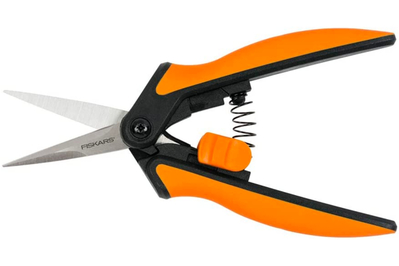
Fiskars Micro-Tip Pruning Snips
The sharp, stainless blades and the spring-action handle make these precise micro-tip shears especially easy—even pleasant—to use.
*At the time of publishing, the price was $12.
Designed to encourage new growth on small plants and flowers, the Micro-Tip Pruning Snips from Fiskars come recommended to us by senior staff writer Rachel Wharton. She uses them to cut herbs straight from the stem and to deadhead flowering plants like geraniums and petunias. The lock is reliable enough that Rachel feels comfortable toting these in her pocket while gardening, and the blades spring back after each snip, minimizing hand fatigue and strain.
Artistic watering straws

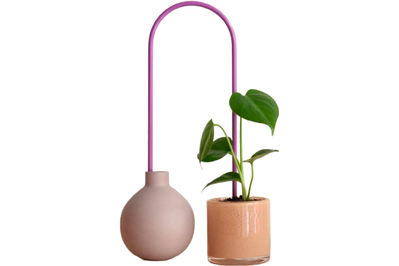
Plantstraws
These gallery-worthy plant straws use a cotton cord to slowly draw water from the container vessel into the soil of plants. The straws are available in many colors, but you have to supply the water container.
To help irrigate their crops, outdoor gardeners historically used ollas (unglazed ceramic jars), which they filled with water and buried in the ground. These sculptural plant straws, available in brass or stainless steel, use a similar basic technology but for houseplants. A wick running through the straw pulls water from a jar or bottle into the plant’s soil, helping to provide a slow, steady flow of moisture. This type of watering suits plants that like moist soil, including baby’s tears (Soleirolia soleirolii) and umbrella papyrus (Cyperus alternifolius). The straws can also be used as a trellis for climbing plants. The recipient simply has to wash it and cut off (or replace) the cord when needed—and they can keep it forever.
A mushroom-growing starter kit
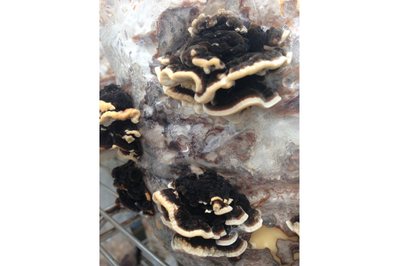
Smugtown Turkey Tail Mushroom Grow Kit
Just one spritz a day is all it takes to grow fresh, organic oyster mushrooms with this kit, consisting of six pounds of myceliated sawdust.
May be out of stock
For the indoor gardener who likes to eat what they grow, a mushroom-growing kit can make an unusual and surprising gift. Technically, mushrooms aren’t plants—they contain no chlorophyll, and they obtain their nutrition by metabolizing organic matter. In other words, they eat dead plants. When conditions are right, they surface and fruit, and a few of those fruits make for a delicious meal. It’s a treat to pull fungi up close and learn from them. Urban naturalist Candace Thompson, who stewards the native food forest in New York’s Stuyvesant Cove Park, recommends kits from Smugtown Mushrooms. This company offers a broad choice of mushrooms, including reishi and turkey tail, as well as gift cards. If the gift is for a beginner, you may want to go with the oyster-mushroom kit, since these mushrooms are the easiest to grow indoors.
Plant-based art

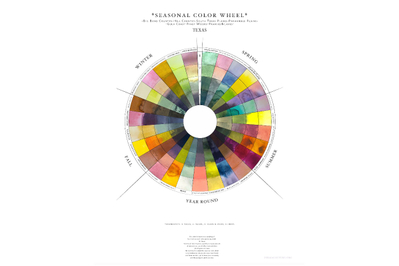
The Seasonal Color Wheel by Sasha Duerr
Artist Sasha Duerr collected local, seasonal plants from seven regions in the US and used them to dye microclimate color wheels. The vibrant, 14-by-20-inch prints of her work come on thick, toothy paper and are special enough to frame.
A wreath of sorts, this color-soaked wheel is a snapshot of the plants and foods that grow in one of seven areas, including New York, Hawaii, Los Angeles, New England, and the San Francisco Bay Area. To make the wheels, artist Sasha Duerr collected local plants from these regions throughout the year to create natural dyes, using various mordants (chemicals used to set dye) to manipulate the colors. The composition derives its uncanny sense of movement from the way Duerr applied the pigments to the high-quality paper. As each poster says, this is a gift to “awaken the senses” and to inspire new ways of looking at streetscapes.
Botanist’s hand lens
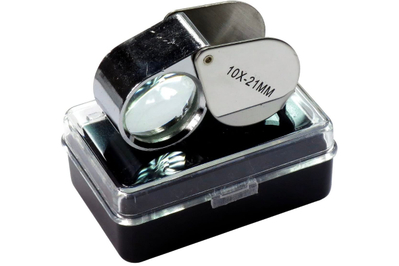
HTS 202A0 10x 21mm Stainless Steel Jeweler’s Singlet Loupe
Though it’s only 2½ inches wide, the glass lens of this stainless steel loupe offers 10x magnification—just enough to get detailed, but not so much as to render specimens unrecognizable.
Hand lenses are invaluable optical aids for botanists, and they’re a perfect gift for the home gardener. Loupes encourage basic botanical discoveries of plant parts like stomata, the pores on stems and leaves that allow carbon dioxide in and oxygen and water vapor out. Perhaps even more importantly, loupes aid in the discovery and proper identification of insects, something plant caretakers must manage. The best ones, like this jeweler’s singlet loupe, are simple, with well-constructed metal sheaths that protect a quality glass lens. We find that 10x magnification meets all the basic needs.
A plant-nurturing book
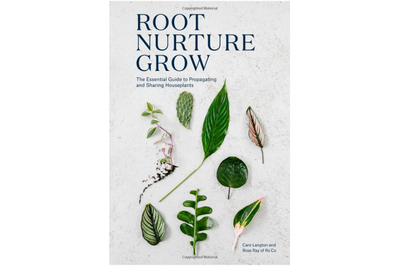
Root, Nurture, Grow: The Essential Guide to Propagating and Sharing Houseplants
This comprehensive, money-saving guide to successfully propagating house plants is equipped with easy steps and helpful, beautiful photographs.
During active and dormant seasons alike, the plant fan in your life will likely appreciate a guide to houseplants—both for reference and for inspiration. Root, Nurture, Grow: The Essential Guide to Propagating and Sharing Houseplants will teach people brimming with botanical enthusiasm how to take cuttings to propagate any houseplant (for keeping or sharing) and how to prepare organic rooting mediums.
A friendship plant
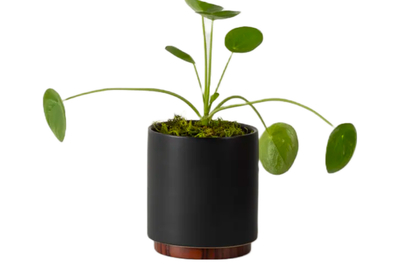
Léon & George Pilea Peperomioides
This delicate-seeming plant is hardier than it looks and recovers quickly from shipping. It comes with a choice of mid-century modern pots.
*At the time of publishing, the price was $90.
Pilea peperomioides goes by many names—Chinese money plant, UFO plant, pancake plant, missionary plant, lefse plant. But this cheerful, round-leafed plant’s curious name and its history are secondary to the fact that it’s very easy to maintain (it prefers bright but indirect light). It’s also simple to propagate, so the gift you give today may return later in the form of a cutting. And that has earned the Pilea peperomioides yet another nickname: the friendship plant. We like Léon & George because it ships its plants in specially constructed protective boxes, and every plant is covered by a 45-day guarantee (for any black-thumb mistakes).
Soil scoop
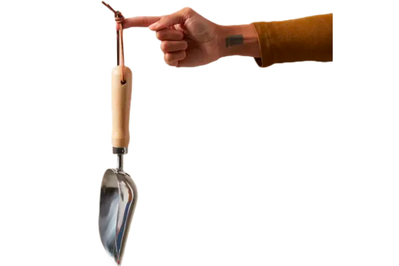
Bloomscape Soil Scoop
This solid scoop is ideal for potting and repotting, and it helps to minimize soil spillage. It’s also good-looking enough to leave out.
Most people have scoops for flour, sugar, and coffee—so why not for soil? The stainless steel Soil Scoop from Bloomscape has a deep base cup and high sides, for transferring soil from bag to container with minimal spillage. With an attractive wooden handle and a leather loop, this scoop is also good-looking enough to hang in the open. To help the recipient set intentions (and to make sure the scoop’s not used for protein powder), pair it with a bag of soil. We prefer this potting soil from the specialists at Organic Mechanics because it contains compost and worm castings (these ingredients are not found in most commercial mixes, but they support soil fertility, which is hard to maintain when gardening in containers).
An apron for kitchen and garden


Tilit Contra Chef Apron
This lightweight, durable apron will keep your plant-loving pal clean and dry not only when they cook but also when they tend to their houseplants.
Aprons are immediately associated with cooking, but they have a role for gardening, too. We’ve tested dozens of kitchen aprons, and we think the Tilit Contra Chef’s Apron would work just as well for gardeners as it does for home cooks. It’s lightweight and water-resistant, and our testers found it very comfortable to wear. Unlike traditional waxed canvas aprons, which can feel heavy and stiff, this one is made from a thinner cotton that’s treated with a water-repelling solution. The clean lines and the range of simple color options make this apron a great gender-neutral option.
Cactus and succulent inspo
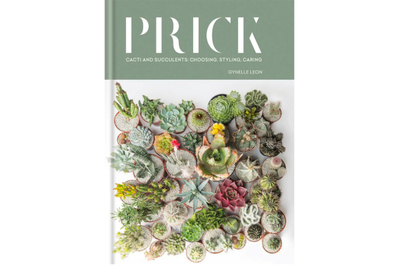
Prick: Cacti and Succulents: Choosing, Styling, Caring
This cheekily named glossary of succulents and cacti is an indispensable care manual for the somewhat misunderstood plant families (they aren’t all that low-maintenance!).
Succulents and cacti both have a reputation of being easy, low-maintenance plants, so they’re a favorite gift idea. Yet home gardeners must still deftly navigate these arid-land plants’ distinct soil, water, and fertilizer needs. For someone who’s interested in learning more, we recommend Prick: Cacti and Succulents: Choosing, Styling, Caring, a beautifully shot glossary of succulents and cacti that showcases their vast sculptural and textural range, delves into their history and origins, and offers styling tips on how to pot and group them indoors. Whether the book inspires care of a single Euphorbia trigona (African milk tree) or a curtain of trellising Senecio rowleyanus (string of pearls), it will become a delightful companion on a very long plant journey—cacti often outlive their caretakers, as the book’s author, Gynelle Leon, notes.
A botanical garden membership


Botanical garden membership (varies by location)
Nothing is quite as pleasant and inspiring as taking a stroll through a botanical garden. Membership provides year-round access and supports the efforts to keep such places alive.
Botanical gardens elevate the art of caring for plants in captivity to its highest form, and they make this art accessible to the public. In these gardens, plants are cared for by skilled horticulturalists and arborists who maintain stunning living collections. A botanical garden membership provides unlimited inspiration as well as access to classes, research, library collections, herbaria, and plant sales. The American Horticultural Society’s garden directory will lead you to local and regional gardens across the country. While you’re on the AHS website, you can browse its catalog of national plant events and design a destination trip for (or with) your loved one.
We love finding gifts that are unusual, thoughtful, and well vetted. See even more gift ideas we recommend.
















